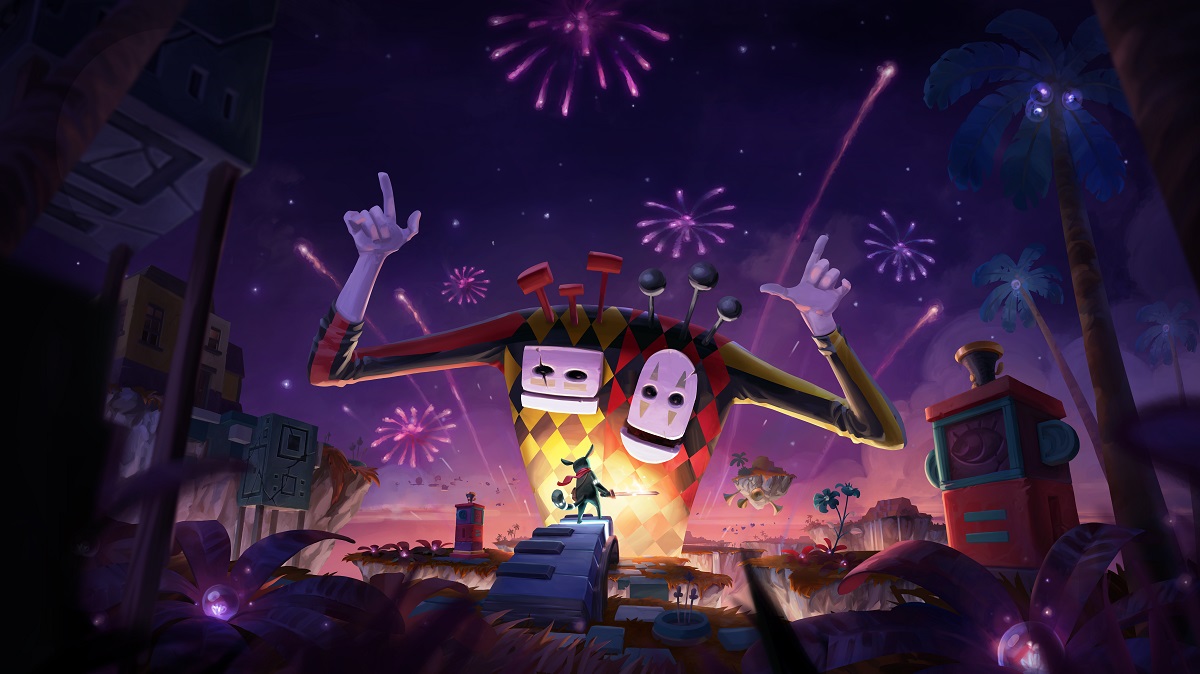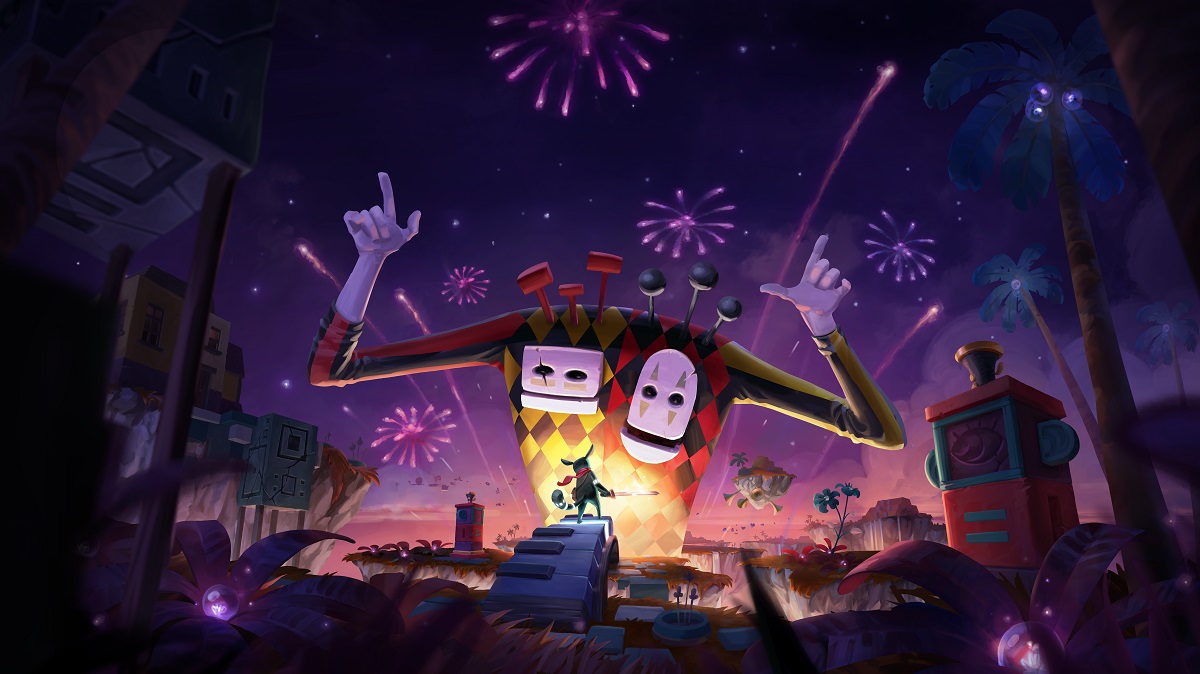We’re all firm beliefs
I spend a lot of time wrapped up in my own head, so I’m familiar with the landscape. However, I’m still learning how to deal with all the mess. Therapy helps, but sometimes looking at things from another perspective can make sense of things. 2019’s Figment tried to do just that by casting you as Dusty, the mind’s courage, and having him explore an addled brain.
Figment was not a solid click for me. It had an easy-to-appreciate aesthetic, featuring wonderful art and enjoyable music. It also had an obvious passion for pushing it forward and upward. There was a noticeable cohesion to the whole project, making it feel like everything it could be. However, it was lacking something I’m having difficulty describing. Here goes:
Figment doesn’t have enough chew.
That’s not to say it’s an insubstantial game. It’s just one that doesn’t provide enough stimulation to either the analytical or cognitive parts of my mind. I also don’t mean to imply I didn’t like it. It just left me hoping that Figment 2: Creed Valley does a better job of giving me something to chew on.
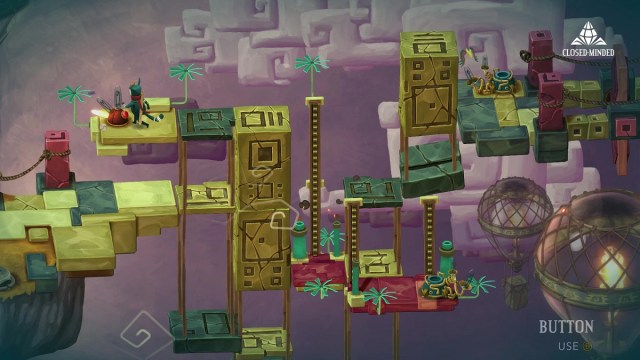
Figment 2: Creed Valley (PC [Reviewed], Switch, PS4, Xbox One)
Developer: Bedtime Digital Games
Publisher: Bedtime Digital Games
Released: March 9, 2023
MSRP: $24.99
To answer what might be the question on the top of your mind: No, you don’t need to play Figment to understand what is going in in Figment 2. It doesn’t spend much time on introduction, but the characters and situations are simple enough to understand, and there isn’t much in terms of context from the last game that you need.
That said, you might as well start with Figment. Neither games in the series are particularly long, at about 5 hours a piece, and the art and mechanics are so cohesive between the two games that they flow nicely into each other.
In Figment 2: Creed Valley we rejoin Dusty, who is the mind’s courage, and Piper, Dusty’s disgustingly optimistic bird friend. They’re tasked with diving down to the titular Creed Valley to deal with some mental disarray. In the real world, the dude whose head they live inside wants to buy a house and is working overtime. This is disappointing his family, so hopefully by sorting through some of his mental baggage, he’ll stop wasting away at the office.
Critique like an idiot
I mentioned earlier that Figment 2 is almost a straight continuation of everything that is Figment. This is radical since everything that made Figment worth playing is carried over. However, this is non-radical in the sense that everything I complained about in the introduction is still here.
Figment 2 (and by extension, Figment) has a lot of appreciable strengths. It looks wonderful, employing a hand-drawn art style that combines 2D and 3D in convincing and meaningful ways. It also has a kicking soundtrack, making subtle hand gestures toward being a full musical. Bosses will sing at you, and sometimes those tunes are catchy.
It’s also a well-polished experience. It hides its seams very well to the point where in order to figure out what I don’t like about it, I have to do something I’m ill-prepared to do: use my brain. You could totally stop here in the review. If you like the look of Figment 2: Creed Valley, it’s really not a bad experience. It’s worth a try.
However, its problems – or perhaps just the issues I have with it – are nuanced.
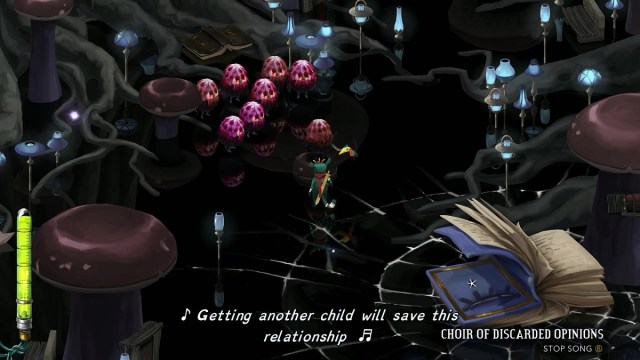
Children can’t own houses
The gameplay of Figment 2 is extremely simple. You smack things with your sword, and then you also roll. In a way, it’s like a lot of games. For example, it’s like The Legend of Zelda or Tunic. However, while those games start rolling in more mechanics, you basically stop at smacking and rolling with Figment 2.
I kept one wondering if Figment 2 is actually a game directed towards children. Then I realized that children can’t own houses and have no hope of ever owning houses, and I got really confused. Then the dialogue kept making puns, and Piper’s sentimentality made my dark, jaded heart feel nauseous. So, all I can say for sure is that my buff, meaty thumbs were unimpressed by the lack of depth in the gameplay.
Figment 2 is also extremely linear and predictable. That’s not necessarily a bad thing. I can deal with linearity, but I kind of feel like the game could just play itself. It doesn’t really give you much agency, which makes me wonder why I’m even here.
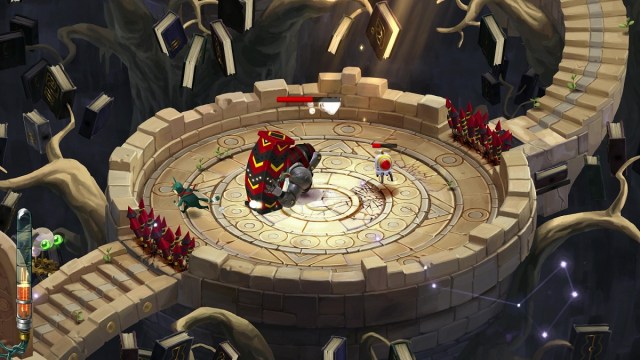
All work and no play makes Jack a dull boy
The story is also not great. It’s not bad, but I feel like I’ve seen every single facet of it before. The whole “you’re working too hard and letting life pass you by” is such well-trodden territory. It’s been a long time since I’ve seen The Shining, but I’m pretty sure that’s what it’s about. It also doesn’t have much else to say about it other than “don’t.” A moral lesson that The Shining probably did much better.
Looking at Figment 2 from any angle other than a strictly aesthetic one makes it seem lacking. But because it executes its sights and sounds so expertly, it’s really hard to identify where it’s lacking. It’s so well-polished and tangible passion has gone into crafting it that, so long as you have a good vector on what to expect, it’s still possibly a good time. I think I just might be too cynical and jaded to connect with its kindness and optimism.
[This review is based on a retail build of the game provided by the publisher.]
